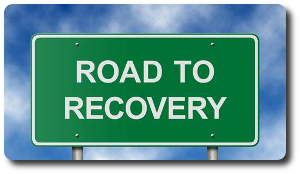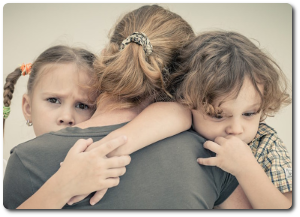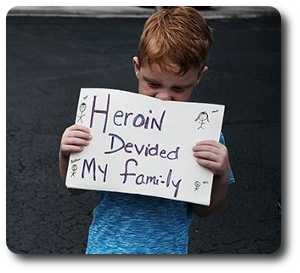 I have recently had the privilege of starting to work with a parent whose child has been looked after by the local authority for the past two years. My work is helping the parent develop a new relationship between father and his son. This parent, let’s call him John, was in his twenties when his second son was born, At that time, John was fully committed to his drug and alcohol addiction.
I have recently had the privilege of starting to work with a parent whose child has been looked after by the local authority for the past two years. My work is helping the parent develop a new relationship between father and his son. This parent, let’s call him John, was in his twenties when his second son was born, At that time, John was fully committed to his drug and alcohol addiction.
Those of us who have worked with adults in addiction know this is a traumatic and difficult time. John told me about his struggle with becoming a parent alongside being in the grip of an addictive drug. John was torn between attempting to do what was right by his son while at the same time steering down the path of feeding his addiction.
John knew where his loyalties should lie, that his new-born child’s needs were more important than anything else, and that should have been all that mattered. John was criticised by family and friends; his addiction was in full swing and the heroin had taken full control of his life. The lies and the mistrust were growing at the same pace and inflicting John with another emotional battle, the breakdown of family ties.
His family judged him and distanced themselves from him because of the drug abuse. His addiction tore him between his  social and moral values, and allowing the poison that gripped him to take over his life, paralysing him and keeping him from being the dad, son, brother and partner he wanted to be.
social and moral values, and allowing the poison that gripped him to take over his life, paralysing him and keeping him from being the dad, son, brother and partner he wanted to be.
14 years on and John is now in a place whereby he has addressed the addiction to heroin and is slowly rebuilding his life. John has suffered; he has been judged, blamed; he is ashamed of his past. These emotions run deep, and each day he awakens with the daily battle to make amends with the world, alongside the constant battle to keep “clean”.
John is juggling two systems: one in which he is the birth parent, and another in which he is the absent father. He has allowed me to work with him, to help him understand how he can begin to reattach and rebuild his place in this world he has been estranged from for 14 years. John lives with a deep-seated belief that he is a ‘bad’ father, worthless and unreliable.
These are his understandings, to him they are real; he believes in them. Some of these beliefs have been confirmed by ‘others’ in John’s world; professionals who have been involved in his life both past and present have reinforced some of John’s guilt and shame.
 How, I ask myself, can I help John make a connection within himself? I recognise that he is a father of worth, that he can embrace a new journey and rebuild the relationship he so dearly wants to invest in. John has expressed how much he would like things to be different between him and his son, how much he wants his vision to become reality that he can learn new skills to rebuild the relationship, that the past will become the past and that the future can be positive and bright.
How, I ask myself, can I help John make a connection within himself? I recognise that he is a father of worth, that he can embrace a new journey and rebuild the relationship he so dearly wants to invest in. John has expressed how much he would like things to be different between him and his son, how much he wants his vision to become reality that he can learn new skills to rebuild the relationship, that the past will become the past and that the future can be positive and bright.
My task is to help John understand that while his situation is difficult, his task is not impossible. Johns addiction has held him back from maintaining positive relationships, parenting a young person who is in residential care is not only not easy but actually an extreme challenge and at the same time help John have faith and grow his belief that things can get better.
 While he reconnects with his son, he must also acknowledge the abuse his child has presented with, and take the position that the violence, the aggression and lies are behaviours that are not acceptable. My task is also exploring with John how he has never stopped loving his child, and that there have been exceptions to problematic patterns of interaction – that John has even offered support and stability in times when it has been difficult to do so. The picture becomes even more complicated, as we develop an understanding that there are times when John needs to take care of himself first, and that keeping himself safe will in turn protect his son from more exposure to John’s chaotic lifestyle.
While he reconnects with his son, he must also acknowledge the abuse his child has presented with, and take the position that the violence, the aggression and lies are behaviours that are not acceptable. My task is also exploring with John how he has never stopped loving his child, and that there have been exceptions to problematic patterns of interaction – that John has even offered support and stability in times when it has been difficult to do so. The picture becomes even more complicated, as we develop an understanding that there are times when John needs to take care of himself first, and that keeping himself safe will in turn protect his son from more exposure to John’s chaotic lifestyle.
John has never stopped caring for his son. That ‘care’ might look different to ‘others’, it might seem that John isn’t ‘doing the right thing’, that John is ‘letting his child down’ and that’s ‘not how a Father should be’. Sometimes, it is the judgement of others, based on their normative expectations, that leads to the deep seated belief that a parent is ‘bad’. John is not a ‘bad’ parent – John has been lost and afraid.
He has lost his voice to express himself, lost his way because of substance abuse, lost his son because of not knowing what to do for the best. He is afraid of blame; he is afraid of rejection and afraid of judgement, yet he wants to return. John is not a bad parent.

Rachael Aylmer
Accredited NVR Practitioner
Associate Director
